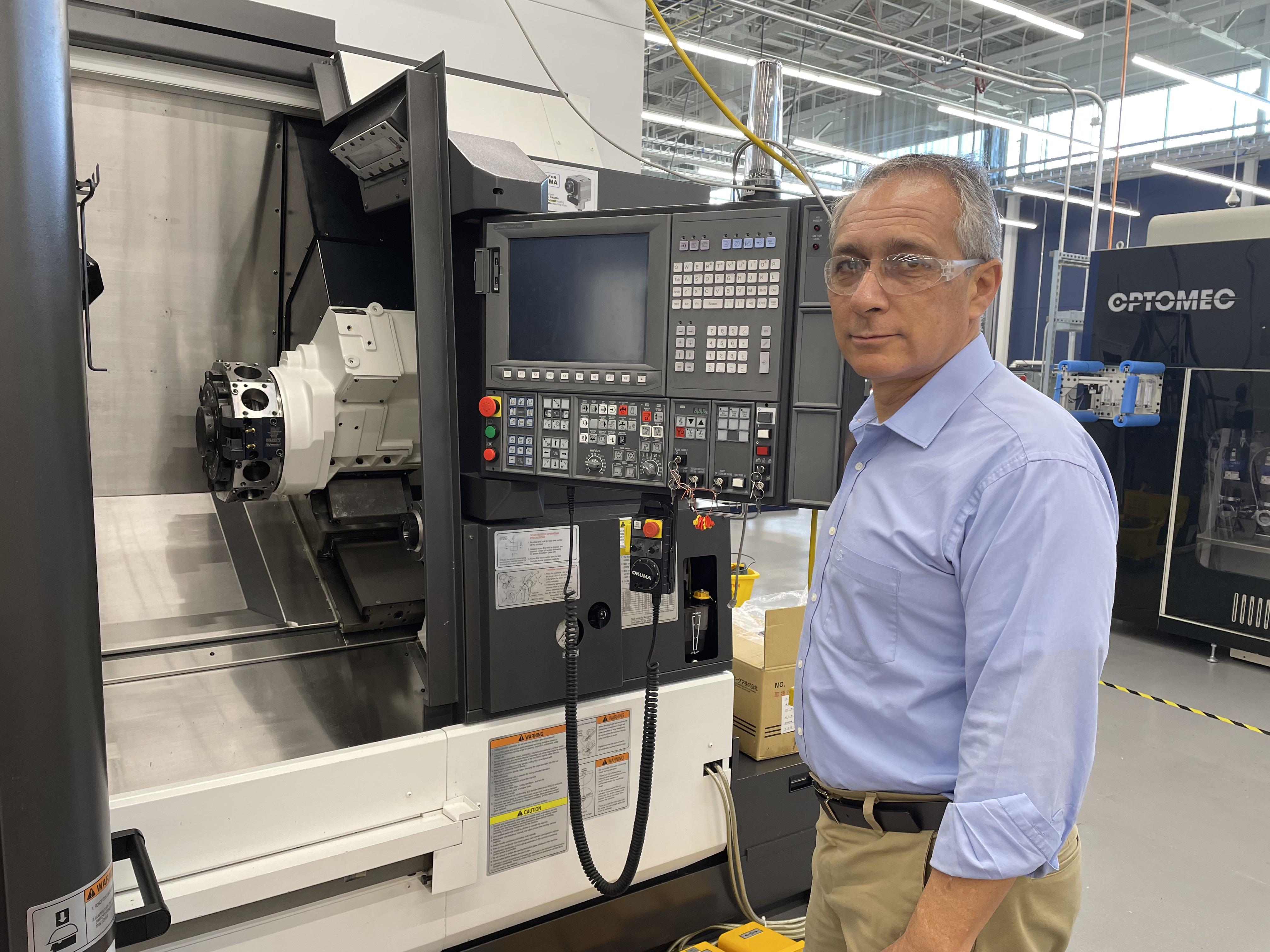GTMI Hosting Visiting Manufacturing Scholar
Apr 14, 2023 —

Professor Horacio Ahuett Garza from the Tecnológico de Monterrey
Professor Horacio Ahuett Garza from the Tecnológico de Monterrey recently settled into the Georgia Tech Manufacturing Institute (GTMI) community as a visiting scholar. Ahuett is a leading faculty member in the Mechanical Engineering and Advanced Materials Department at Tecnológico de Monterrey located in Monterrey, Mexico. He earned his mechanical engineering masters and doctorate from Ohio State University more than 25 years ago. Ahuett will be interacting with Georgia Tech faculty to explore research areas in Smart Manufacturing and Industry 4.0.
“My home university has 30 campuses across Mexico with the main campus being in Monterrey—where I was born. I’ve known professor Tom Kurfess, executive director of GTMI, for more than 20 years. He has a faculty appointment at Tecnológico de Monterrey similar to a distinguished professor due to an agreement with Georgia Tech,” said Ahuett. “We’re both involved with advanced manufacturing but in different countries with similar processes. However, the facilities at Georgia Tech are far more advanced, such as the Advanced Manufacturing Pilot Facility (AMPF) operated by GTMI. Some of our graduate students periodically come to participate in research at Georgia Tech.”
Ahuett, who has ample manufacturing research experience, was extended an invitation to visit Georgia Tech this spring. He is using this visit as a sabbatical to further his understandings and learn more about new advanced manufacturing topic areas.
He recently attended The Hershey Company lecture at GTMI presented by Will Bonifant, vice president of the US and Canada supply chain, and Chris Myers, vice president of engineering at Hershey. The topic was modernizing a century-old, iconic snacks company leveraging Industry 4.0 digital and technology solutions.
“Today, Hershey provided a good understanding of smart manufacturing and how Hershey uses its fast access to data to make quick decisions that are implemented inside the factory and its processes,” said Ahuett. “They deployed smart manufacturing processes to use fewer resources, reduce waste, yet make factory equipment changes in a timely manner and safe manner to deliver targeted product quantities based on customer demand.”
Ahuett indicated that the proliferation of sensor technology and corresponding data can be used to benefit manufacturing by reducing waste, saving energy, and generally making companies more agile with better use of resources in factory settings. One example would be understanding performance parameters for tooling where you generally know the life cycle of a cutting tool and are able to measure the tool’s degradation in real time so that you can make plans to replace the tool at the best time to minimize your downtime of that tool versus waiting for it to break unexpectedly and shut down the process.
His strongest research interest during his GTMI visit is the topic of digital twins.
“The topic of digital twins is not new -- it has been around for at least 40 years. A good example is that during the Apollo moon missions NASA had digital twins. They had instruments on earth that replicated the instruments sent on the moon missions so they could simulate actions [using data] on earth that would occur on the actual spaceships,” said Ahuett.
“The concept of digital twins generates confusion. The first impulse is to think of a digital image as the twin of a physical entity. In principle, the digital twin simulates the behavior of the physical twin to model and make predictions. Not all processes can be modelled in real time, but some can which provides beneficial information in a timely manner given how fast computer processors are today. Today, we have more and better tools that use data to give us greater insights.”
Ahuett will be working with robots and co-robots in collaboration with Kyle Saleeby, research engineer at GTMI, to help automate accurate measuring during a manufacturing process. A piece of their research project will be building models so a part’s characteristic data can be tracked and stored in a digital twin that represents a specific instance of each part manufactured and which will also include external data associated with the manufacturing of the part.
“I’m hoping my sabbatical at Georgia Tech will help me develop new competencies, new skills, and new knowledge on critical topics. I want to move research further in some areas and part of being here is to figure out some things that I didn’t know before with the help of GTMI,” said Ahuett.




